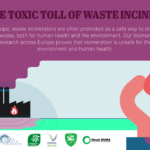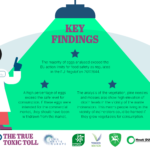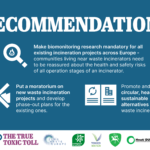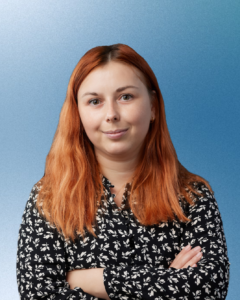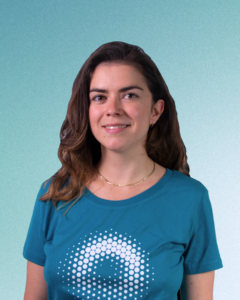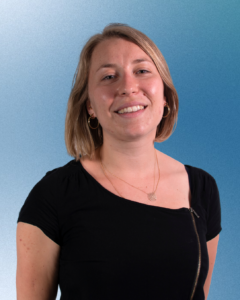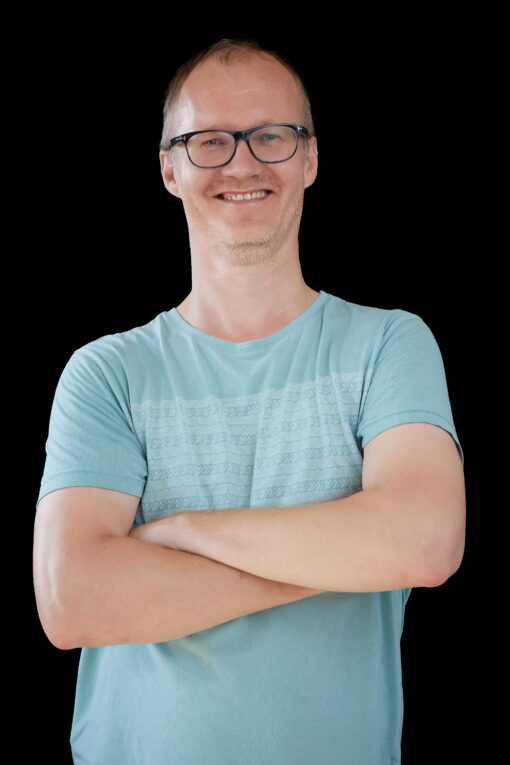
#MeetTheTeam – Janek Vähk
It’s time to discover and learn more about the people behind Zero Waste Europe’s work and magic! In addition to the ZWE Changemakers series, where you can learn more about our member organisations, we invite you to get a closer look at our staff, what they do, and what inspires them to work for a zero waste future.
This time, we sat down with our Zero Pollution Policy Manager, Janek Vähk, who has been at Zero Waste Europe since 2015.
How did you come to join Zero Waste Europe?
I saw this opportunity as a way to join a new, fast-growing organisation, which had a flat management structure and where I could contribute to many areas with my knowledge and experience, but also be able to grow and develop experience in areas where we had no prior work done. I saw this as a once-in-a-lifetime opportunity. And I wasn’t wrong, my role has changed at least 3 times over the last 7 years.
What motivated you to dedicate your career to advocating for the sustainable management of residuals and alternatives to incineration?
When I joined the organisation, it wasn’t to work specifically on alternatives to incineration – back then, I was able to choose what I wanted to work on. At the time, it made a lot of sense to focus on the issue of pollution and climate change, and it’s only gotten more relevant now. This is also where the origins of ZWE are in terms of our global movement, so I made the right choice. Pollution and climate crisis are the key issues the world is facing today.
What would you say is the most interesting part of your job?
I like the fact that we have a lot of flexibility in our work; also, as a relatively young organisation, we do not have many old or traditional ways of doing things. This means that we are constantly evolving and trying out new approaches to the challenges we’re trying to solve.
What would you say is your greatest professional achievement while working at ZWE?
It’s hard to say but perhaps the change in the narrative that modern incineration is safe and good practice. It really isn’t. We have been able to create some awareness among decision-makers and citizens in general on all the dangers that such thinking leads to – such as our The True Toxic Toll campaign on the biomonitoring of incineration emissions. We are already seeing some fruits – for example, the EU has stopped funding incinerators and, more recently, has started to label them as part of the problem and not as a solution.
Findings from the 2022 and 2021 biomonitoring research on incineration emissions, as part of The True Toxic Toll campaign.
What are the biggest challenges that you face in your work?
The current war and several crises (COVID-19, energy, and inflation) are making progress on the green agenda very hard. Some not-so-green industries – such as incineration – are now labelling themselves as part of the solution – for instance, they claim that they’re the key to avoiding dependency on Russian gas or to producing energy locally. Of course, these claims are exaggerated and, when analysed from a long-term perspective, make no sense.
Who is someone you look up to in the environmental space?
There are many young and inspiring activists in our network fighting plastic pollution and incinerators. They are all inspiring and brave and go the extra mile. I wouldn’t single out any of them specifically, they are all very special.
What would you say is the most interesting or fun part of your work?
I think designing awareness-raising and policy campaigns is very interesting but it can also be quite challenging. It requires a lot of attention, but also patience, to change prevailing narratives. It’s really fun to be part of a group of people wanting to change how we do things for the better.
In your view, which actions are needed to achieve an incineration-free future in Europe?
We need a new strategy for managing mixed waste. There is already a lot of interest in non-thermal approaches to avoid incineration. In 2020 we launched our strategy – the so-called bridge strategy for managing mixed waste within a circular economy. This approach combines the use of mixed waste sorting (to extract additional material for recycling) with biological treatment of the remaining waste before it is landfilled. For this approach to be rolled out, we need policies to change. Most importantly, we need a shift in the narrative from limiting landfilling to limiting mixed waste generation. Material Recovery and Biological Treatment (MRBT) systems will be relevant not only in Europe but, perhaps more importantly, also globally.
Looking ahead, which developments or priorities will you be focusing on in your work?
Currently, I am working on the revision of the EU Industrial Emissions, the EU Packaging & Packaging Waste Regulation, and the upcoming review of the EU Waste Framework Directive to create an enabling framework for MRBT systems.
Are there any other resources or topics that you want to highlight?
We are currently working with a group of NGOs, researchers, and industries on the white paper for the revision of the EU Waste Framework Directive, intending to change it to a Resource Framework Directive. The idea is to use the current revision as an opportunity to design a coherent and consistent policy framework for a circular economy. This is needed to create opportunities, incentives, and the confidence necessary for businesses to innovate and invest in the new business models that will break the link/perception between material consumption and prosperity.
Watch out for this!
Want to learn more about Janek and his work? You can reach out to him at [email protected]




